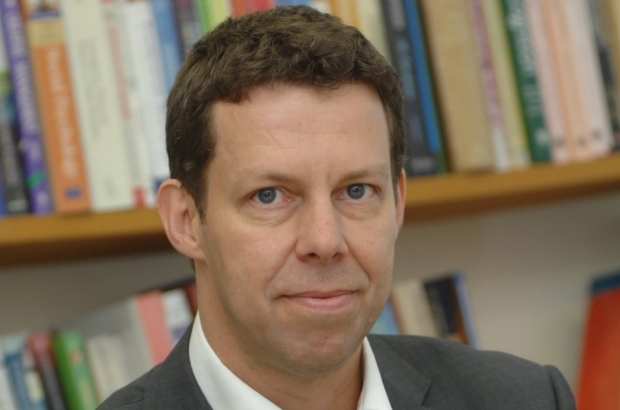- Daily & Weekly newsletters
- Buy & download The Bulletin
- Comment on our articles
Professor Koen Lamberts: a Belgian academic in Britain
Professor Koen Lamberts is a cognitive psychologist with an extensive track record in experimental and theoretical research on human perception and memory. He is currently deputy vice-chancellor and provost of Warwick University. In January 2014, he will take up the post of new vice-chancellor at the University of York. He kindly agreed to answer a few questions from Kris Dockx, of the Belgian Embassy in London.
Could you explain to our readers what your current positions at Warwick University entail?
I am an academic but also the Deputy Vice-Chancellor which means that I’m responsible for the academic budget, among other things. I allocate resources to the academic departments at Warwick University for the teaching and research, I am the line manager of the various departments, I oversee the academic side of the university. My academic subject is experimental and cognitive psychology, but in this wider role my specialisation is rather less important.
Cuts in budgets have meant that universities need to attract sponsorship and organise various forms of fundraising. How does Warwick University deal with this?
We rely heavily on a number of funding sources. First of all fee income. Our students pay high fees and that means we have to make sure we deliver a wonderful experience. We also rely on competitively gained research income and on industrial income. We have extensive relations with major industrial partners. An example is Jaguar/Land Rover, who have a major research centre on Warwick campus. We also engage in fundraising. We have extensive operations that allow us to contact potential funders, sponsors and donators.
Have you noticed any effects on student numbers at Warwick since the significant fees increases last year?
Not much. Like everybody else we had to deal with a very uncertain recruitment environment where the rules were changing rapidly and applicant behaviour was difficult to predict. But overall, the student numbers at Warwick have held up very well. The demand is still there and we still get far more applicants than we can enroll. The picture for us is quite healthy.
In 2014, you will be moving to the University of York. What do you expect from your appointment as new vice-chancellor?
The first thing I will do when I arrive there is to engage very intensively with the institution, to get to know them really well and then to help develop and implement a long-term strategy for securing the future success of the university.
You are obviously pleased to be working and living in the UK? How does it compare with life in the US where you have also lived briefly?
That is a difficult comparison. We only lived briefly in the US and that was to do a post doc so we did not have much money. Consequently, we did not experience the quality of life we could have had if we had stayed longer. We lived in Chicago which is a wonderful city but I don't think we had the opportunity to experience all it has to offer.
Do you have contact with other academic compatriots in the UK?
Yes, there are several Belgians whom I have got to know quite well while I have been in this country. Occasionally, we meet, not so much because they are Belgian but rather because we have an academic reason for getting together.
Can you make a quick comparison between Belgian and British universities from a student’s as well as an academic’s point of view?
That is quite difficult, actually – I have been away from Belgium for more than 20 years, and I don't really know in detail how Belgian universities have evolved in that time. Still, I would imagine that selectivity of student intake is a key difference. Many UK universities are highly selective in their student intake, which means that drop-out rates tend to be relatively low, which is good. However, selectivity also raises some issues, particularly around widening participation and access to higher education.
Have you still got strong ties with Belgium on both a personal and professional level?
We do. My family still lives in Belgium so we pay regular visits. Professionally, I still have very good colleagues in Belgium I catch up with now and then. Yes, we have good ties with Belgium.
Can you see yourself ever moving back to Belgium?
There are no plans to do so for the foreseeable future, because we feel entirely at home in the UK and my wife and I both have a clear role to play here.
This interview is reproduced courtesy of the Embassy of Belgium in the UK















